The first Star Trek pilot, The Cage, was produced in 1964. To celebrate its fiftieth anniversary, this December we are reviewing the second season of the original Star Trek show. You can check out our first season reviews here. Check back daily for the latest review.
Assignment: Earth was almost the last episode of Star Trek ever produced.
It was also possibly (although nowhere near “almost”) the pilot for a spin-off television show.
At the last minute, following a very high-profile fan campaign, Star Trek was renewed for a third season.
Fans would have to wait decades to see an actual Star Trek finalé that reduced the main cast to guest stars.
On one level, Assignment: Earth feels like something of an insult to the cast and the crew who worked on the series, as well as the fans who had campaigned so hard to save the show. It was Gene Roddenberry very clearly and transparently fashioning a parachute for himself. This was an attempt by Roddenberry to line up his next job, to produce a piece of television that would secure him gainful employment for the next couple of years. It is a very cynical piece of television.
Despite the fact that Roddenberry would become inexorably linked with Star Trek for the rest of his career, there is some indication that the television producer had been plotting an escape for some time. Roddenberry’s attention had been focused away from Star Trek for considerable stretches of the second season, affording producer Gene L. Coon more freedom than he might otherwise have enjoyed. During that time away, Roddenberry returned to the police procedural genre. Police Story was written as a pilot for a television show, but aired as a stand-alone movie on NBC in September 1967.
Indeed, Assignment: Earth seems very consciously and very clearly designed as a showcase for Roddenberry and his proposed television show. The sets were built on the budget for Star Trek, and look surprisingly lavish. Might this money have been better spent on an adventure featuring the Enterprise? There is some suggestion that Assignment: Earth was the most expensive episode of Star Trek ever produced, and it feels very much like it is only a Star Trek episode as a matter of convenience, because that way it can be folded under the parent show’s expenses.
According to documentation that Marc Cushman dug up for These Are the Voyages, Roddenberry also fought viciously for the final “producer” credit on the episode, replacing John Meredyth Lucas. This possessive streak would later find expression in the mythology that Roddenberry would build up around himself, fanned by supporters like Richard Arnold. Over the years, Roddenberry would come to downplay the involvement of other people in defining Star Trek, dismissing and diminishing contributions by figures like Gene L. Coon or D.C. Fontana, who had overseen the series during his own absences.
It seems like Roddenberry had firmly taken control of Star Trek towards the end of its second season, despite his considerable absences during the middle stretch of the season. He seemed to be bringing Star Trek consciously backwards, even further than John Meredyth Lucas had done. The penultimate episode produced was The Omega Glory, a rejected pilot for series. With Assignment: Earth, Roddenberry pushed even further back; not only did he take Kirk and the Enterprise back to 1968, but he put them in a pilot for somebody else’s show.
To be entirely fair, this was not unheard of. Using pre-existing television shows to launch new television shows is a logical and sustainable business model. It helps with budgeting; it also provides audience-members with a gateway into this new world. The technique is still in common use, with shows like CSI frequently teasing spin-offs in the parent show before launching the new series itself. Even the Star Trek spin-offs would makes some effort to help launch the next iteration of the franchise, whether setting up the Cardassian withdrawal of the Maquis conflict.
In fact, the idea of using the final episodes of an existing series to launch a potential spin-off was common enough. The Killin’ Cousin, the last episode of Barnaby Jones produced, was intended to spawn a new television series. The last episode of Quincy, M.E., The Cutting Edge, was similarly conceived as a launchpad for a new television show. The final season of Happy Days spin-off Charles in Charles features no less than three would-be pilots that never took off – Fair Exchange, Almost Family, Lost Resort. So Assignment: Earth is not a freak occurrence.
Assignment: Earth began life as a half-hour television pilot without any reference to the Enterprise. The pitch was obviously heavily influenced by James Bond. Tall, dark and handsome, actor Robert Lansing makes a convincing stand-in for Sean Connery. The name “Gary Seven” seems designed to evoke the iconic “Double-Oh-Seven.” The servo resembles a device that Bond might receive from the Q Department – although it should be noted that Bond would not receive his first gimmick pen until Moonraker, a decade after Assignment: Earth aired.
Nevertheless, the influence of the Bond films can be keenly felt on Assignment: Earth. Gary Seven is a secret agent in a sharp suit, paired with a beautiful young secretary. In particular, it seems like Gene Roddenberry and Art Wallace watched You Only Live Twice before plotting the episode. Not only does Assignment: Earth featured Gary Seven involving himself in the space race, it also gives him a cute cat that he can stroke as a way of suggesting moral ambiguity around the character.
In fact, watching Assignment: Earth, Gary Seven feels like a cross between James Bond and a James Bond villain. He is a sauve secret agent capable of infiltrating any secure location on the planet, but he also hijacks a rocket carrying nuclear missiles in order to send a message to the world’s governments. Steering the rocket through a fancy console in an otherwise fashionable office, Gary Seven seems like he might be ready to make some sort of ransom demand or calculated threat.
Assignment: Earth was a collaboration between Gene Roddenberry and Art Wallace. Wallace is perhaps best known for his work on the gothic soap opera Dark Shadows, but he also contributed the script for Obsession. According to Captain’s Logs, Wallace had pitched a similar idea independent of Roddenberry:
“Assignment: Earth is interesting in a sense,” Wallace points out, “because I had gone to Paramount and pitched a series idea to them. They had said that Gene Roddenberry had come up with a very similar idea. So I saw Gene and we decided to pool the idea, which was about a man from tomorrow who takes care of the present on Earth. That was intended to be the pilot, although it was never made into a series. It was a good pilot and it’s a shame, because I think if they had done it as a series with just Gary Seven, it would have been a very successful show.”
Ultimately, Assignment: Earth never did manage to launch that spin-off show, but it has remained a focal point of fan interest over the years. Gary Seven still holds no small amount of interest for fans and writers alike, popping in various tie-in and spin-off media over the years.
However, the appeal of Gary Seven seems rather strange. Assignment: Earth is a very clunky piece of work. It feels like a half-hour pilot that has been padded out with the addition of the Enterprise. Kirk and Spock spend most of the episode’s runtime following Gary Seven around like lost puppies while he drives the plot; when he is not outwitting Kirk and Spock in order to show how clever he is. Inevitably, Assignment: Earth ends with Kirk and Spock endorsing Gary Seven – trusting him to save the day, rather than saving it themselves.
The viewer might be forgiven for wondering what exactly the Enterprise is doing in 1968 in the first place. “Using the lightspeed breakaway factor, the Enterprise has moved back through time to the twentieth century,” Kirk explains. “We are now in extended orbit around Earth, using our ship’s deflector shields to remain unobserved. Our mission, historical research. We are monitoring Earth communications to find out how our planet survived desperate problems in the year 1968.” That is all the explanation we receive.
Given how dangerous the temporal excursions in Tomorrow is Yesterday or The City on the Edge of Forever had been, it is strange to see Kirk and his crew behave so flippantly about time travel. Writing for the semi-official Inside Star Trek newsletter, Ruth Berman struggled to explain this story element as…
An experiment in duplicating the accidental time travel in Tomorrow is Yesterday — the experiment apparently worked, since the Enterprise made it to the 20th century and back to their own time. But, presumably, further experiments in time travel will only be made with great caution because of the danger of changing history.
It is not at all convincing, and Assignment: Earth stands out as the most nonchalant use of time travel in the history of the franchise. Of course, it was written at a point where Roddenberry likely suspected there would be no more Star Trek, so it probably did not seem to be too big a problem at the time.
Looking at Assignment: Earth as an episode of Star Trek seems to miss the point. The Enterprise crew are really just spectators, existing to introduce the audience to the team of Gary Seven, Roberta Lincoln and Isis. Assignment: Earth is a stealth pilot with the budget and the cast from a cult science-fiction show to pass the torch. However, Assignment: Earth never went to series. Instead, the series was stillborn – becoming a quirky footnote in the history of Star Trek rather than the beginning of something more significant.
To be fair, it is easy to see why Assignment: Earth didn’t get picked up for series. Although the teleplay is credited to Art Wallace, it is packed with the sort of awkward exposition and stilted moralising that one expects from Gene Roddenberry. Pondering what Gary Seven might be doing, Kirk observes, “Weren’t orbital nuclear devices one of this era’s greatest problems?” Spock replies, “Most definitely. Once the sky was full of orbiting H-bombs, the slightest mistake could have brought one down by accident, setting off a nuclear holocaust.” The episode is not subtle.
There is something just a little bit uncomfortable about the basic premise of Assignment: Earth. A bunch of anonymous aliens have abducted children from Earth, and raised them to become covert “operatives” on the planet surface. These operatives then work – using advanced technology and no accountability – to “protect” mankind. The implication is that operatives like Gary Seven have been guiding mankind from the shadows for decades, at least – all at the behest of secretive alien taskmasters.
This is a rather problematic set up. After all, The Omega Glory featured Kirk getting very upset at Captain Ronald Tracey for violating the Prime Directive on Omega IV. Then again, Kirk had gone on to nudge the planet’s civilisations towards traditional American values. The original Star Trek was never entirely consistent in its attitude towards the Prime Directive. In effect, this the philosophy of The Apple reflected back upon twentieth-century America, with a more advanced culture imposing their own norms upon a civilisation they deem “primitive.”
However, Assignment: Earth never seems too bothered by this. Indeed, it is interesting that these issues have never really been explored in many of the tie-in materials surrounding Gary Seven and his mission on Earth. It is a pretty sizable issue with the episode, and while the pilot might have been setting the idea up to subvert it later, Assignment: Earth seems to have inherited the worst imperialist tendencies of Star Trek. Kirk (and Starfleet) may have made some questionable decisions, but they have a general philosophy of non-interference. Gary Seven’s philosophy is explicitly one of interference.
This aspect of Assignment: Earth also seems at odds with Roddenberry’s own moral philosophy. Roddenberry was a vocal opponent of the popular ancient astronauts theory, arguing that aliens did not build the pyramids. Roddenberry’s argument – one grounded in the humanism that defines Star Trek – is that humanity did not need mystical alien creatures to help them accomplish wonders. However, Assignment: Earth is the story about how mankind does need alien guidance because they are not capable of assuring their own continued existence.
Sure, Gary Seven is human. However, he is merely the puppet of an anonymous extraterrestrial power. Gary Seven is a cog in a well-oiled machine; he is a replacement part. The “operatives” are so interchangeable that Gary Seven can just step right into the shoes of his predecessors. As such, Assignment: Earth represents quite the departure from the humanism and optimism associated with Star Trek. The best we can hope for is that an alien race decides to meddle in human affairs to make things better.
Even aside from the troublesome subtext of the episode’s basic premise, Assignment: Earth serves to illustrate that perhaps Star Trek (and Gene Roddenberry) were not quite as consistent in their philosophy as hindsight would suggest. Roddenberry did a great deal of myth-making in the years after Star Trek went off the air, and a lot of it has lodged in the popular consciousness. As any rewatch of the series will demonstrate, Star Trek was not always as progressive and utopian as many fans like to believe.
Even aside from the problems with the premise of the show, Art Wallace’s script is decidedly clunky. To be fair, it has a lot of heavy-lifting to do as it integrates the Enterprise, but it has no real focus or levity. Instead, Assignment: Earth is stuffed with awkward exposition. When Gary Seven tries to convince the Beta V of his identity, it does not ask for a pass code or a DNA sample. Instead, it demands a plot dump. “Please confirm identity as supervisor by describing nature of agents and mission here.”
Of course, this seems like a rather arbitrary way of proving Gary Seven’s identity. After all, one assumes that any of his enemies would likely have a working knowledge of who he is and what he is doing. Certainly, if his adversaries know about the existence of the Beta V computer and can fake his voice pattern, it seems unlikely that a broad question about the nature of his assignment will slow them down. The question exists primarily to enable a long and cumbersome television show pitch from Gary Seven.
“Agents are male and female, descendants of human ancestors taken from Earth approximately six thousand years ago,” Gary Seven explains. “They’re the product of generations of training for this mission. Problem: Earth technology and science have progressed faster than political and social knowledge. Purpose of mission: To prevent Earth’s civilisation from destroying itself before it can mature into a peaceful society.” As pitches go, it is hardly “space, the final frontier…”
The rest of the episode is similarly clunky, with none of the central characters seeming particularly well-formed. Although clearly influenced by James Bond, Gary Seven has none of the wit and charm of the playboy spy. Instead, Gary Seven plays like a watered-down version of Spock. However, Lansing is not quite as comfortable with dry and emotionless as Leonard Nimoy, and Gary Seven comes off as rather stilted and awkward. To be fair, given that Gary Seven was raised without human contact, this makes some degree of sense. However, he lacks the sort of charisma needed from a series lead.
In an interview with Starlog, Robert Lansing confessed that he was originally reluctant to do genre television:
“At the time,” he confides, “Gene was a good friend, but I was a New York snob actor, come out to Hollywood. Many folks in my self-perceived position didn’t do Star Trek because it was considered a kid’s show, or a young show at any rate. Gene said, ‘I’m writing this for you and we can play with it. It might be a series.’ He said, ‘Well, you don’t have to, but just do this one thing for me.’ So, I did. It was a damn good script and a lot of fun.”
Although he seems to have softened in the years following the episode, it is interesting that Roddenberry would recruit a lead actor so disinterested.
Terri Garr does a better job with Roberta Lincoln. Garr seems a lot more comfortable with the comedic banter than Lansing, and makes the most of some truly terrible lines. Indeed, Assignment: Earth is downright painful when it tries to be funny, putting awful gags into the mouths of its lead characters. “Where’s three four seven?” Gary Seven demands on Roberta’s arrival. “With three four eight?” Roberta quips, which is painful enough. However, Assignment: Earth goes for the low-hanging fruit and has Gary Seven misunderstand. “Two oh one, code responses are not necessary.”
There is a similarly cringe-inducing scene with a dictation machine, which Assignment: Earth presents as the height of modernity. It is hilariously quaint. More awkward is the script’s patronising attitude towards sixties counter-culture. Asked if she wants to save the world, Roberta explains, “I know this world needs help. That’s why some of my generation are kind of crazy and rebels, you know. We wonder if we’re going to be alive when we’re thirty.” It is horribly condescending, suggesting that counter-culture just needs an older and more authoritative hand to guide it.
However, like Lansing, there is a sense that Terri Garr was not entirely ready to commit to a television series. In her own interview with Starlog, Garr confessed that she did not like to talk about her time on Star Trek, and was almost relieved that Assignment: Earth never went to series:
Teri Garr appeared in Assignment: Earth. However, Garr responds, “I have nothing to say about it. I did that years ago and I mostly denied I ever did it.” She does admit that she would have been in the TV series that the episode was a pilot for, but it didn’t sell. “Thank god,” she says with genuine relief. “Otherwise, all I would get would be Star Trek questions for the rest of my natural life – and probably my unnatural life. You ever see those people who are Star Trek fans? The same people who go to swap meets.”
How about Marc Daniels, who directed that episode? “He’s dead. I liked Gene Roddenberry, but I don’t remember those people. I really don’t want to talk about Star Trek. That’s what I told them about this interview. If it’s a science fiction magazine, they’re going to ask me about this stuff I don’t – ” She breaks off abruptly. So much for that line of inquiry.
Based on these conversations, it seems rather unlikely that Assignment: Earth would have been particularly happy behind the scenes. There is a sense that Roddenberry and Wallace really had no idea of what they would do with the show if it did get picked up.
Assignment: Earth was almost the last episode of Star Trek. It is interesting how many episodes of the second season came close to being the last episode of the series. None of those episodes were particularly good – none of them seemed to encapsulate the essence of what made Star Trek great; none of them seemed to speak to the heart of the show. Assignment: Earth is a woefully cynical piece of television; more than that, it is also a very poorly-constructed episode of television. As with The Omega Glory before it, it suggests that Roddenberry was a better inspirational figure than he was a storyteller.
Still, Star Trek managed to limp on into a (deeply troubled) third season. Gary Seven and his supporting cast faded into history, abandoned forever in 1968. Maybe there is a happy ending, after all.
You might be interested in our other reviews from the second season of the classic Star Trek:
- Catspaw
- Metamorphosis
- Friday’s Child
- Who Mourns for Adonais?
- Amok Time
- Supplemental: Spock’s World by Diane Duane
- The Doomsday Machine
- Supplemental: New Visions #3 – Cry Vengeance
- Wolf in the Fold
- The Changeling
- The Apple
- Supplemental: (DC Comics, 1984) #43-45 – The Return of the Serpent!
- Supplemental: (IDW, 2009) #13 – The Red Shirt’s Tale
- Mirror, Mirror
- Supplemental: Deep Space Nine – Crossover
- Supplemental: New Visions #1 – The Mirror, Cracked
- Supplemental: (DC Comics, 1984) #9-16 – New Frontiers (The Mirror Universe Saga)
- Supplemental: Mirror Images
- Supplemental: Mirror Universe – The Sorrows of Empire by David Mack
- Supplemental: (IDW, 2009) #15-16 – Mirrored
- The Deadly Years
- I, Mudd
- Supplemental: (Gold Key) #61 – Operation Con Game
- Supplemental: (DC Comics, 1984) #39-40 – The Return of Mudd
- The Trouble With Tribbles
- Supplemental: The Galactic Whirlpool by David Gerrold
- Supplemental: Alien Spotlight – Tribbles
- Bread and Circuses
- Journey to Babel
- A Private Little War
- The Gamesters of Triskelion
- Obsession
- The Immunity Syndrome
- A Piece of the Action
- By Any Other Name
- Return to Tomorrow
- Patterns of Force
- The Ultimate Computer
- The Omega Glory
- Assignment: Earth
- Supplemental: Assignment: Eternity by Greg Cox
- Supplemental: (DC Comics, 1989) #49-50 – The Peacekeepers
- Supplemental: (IDW, 2008) Assignment: Earth
Filed under: The Original Series | Tagged: art wallace, assignment, assignment: earth, cancellation, Gary Seven, gene roddenberry, NBC, robert lansing, sixties, spin-off, star trek, Television, terri garr, the original series, time travel, tos |















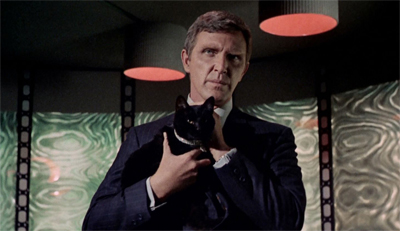
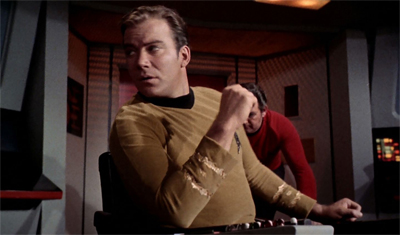
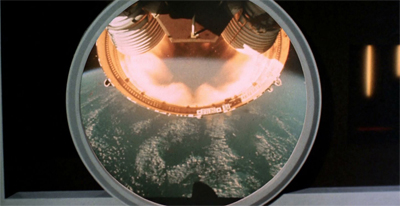
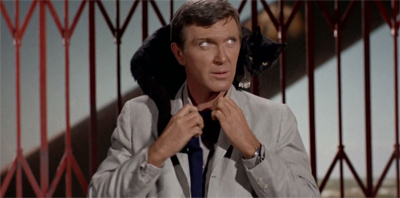
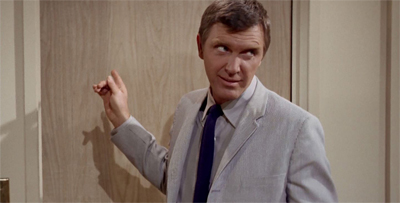
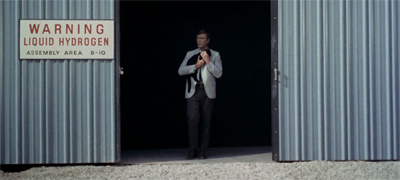
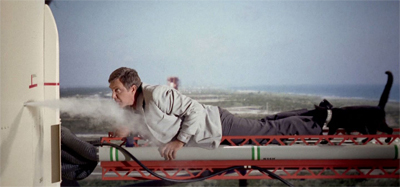

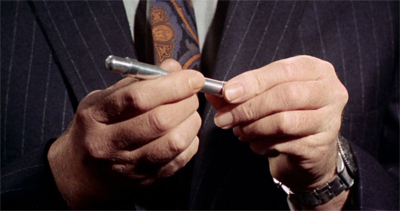
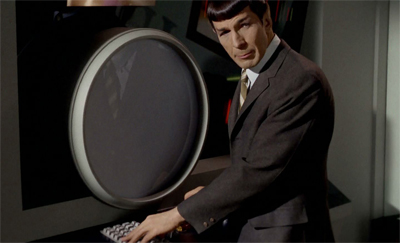
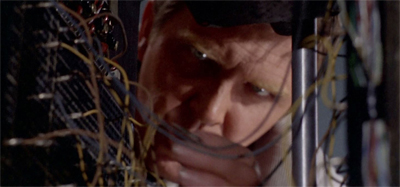
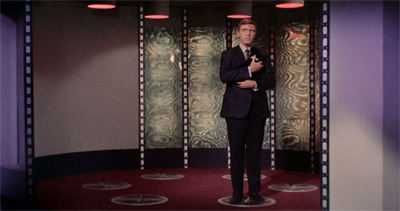
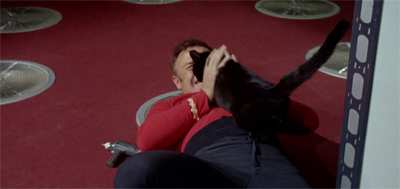
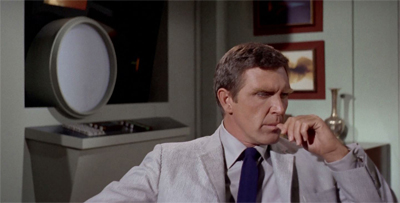
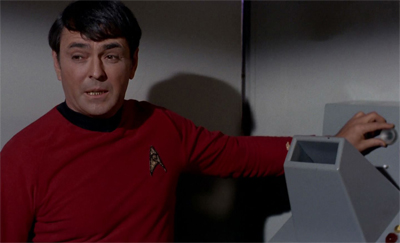
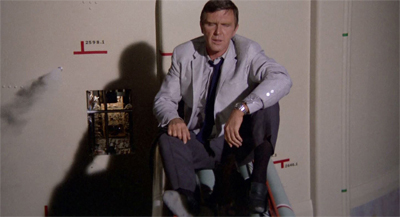
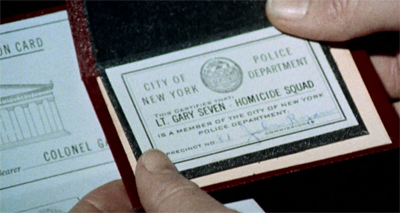
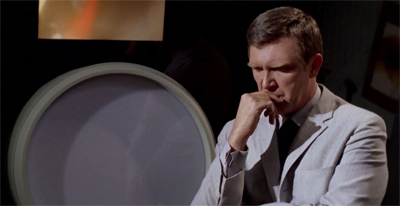
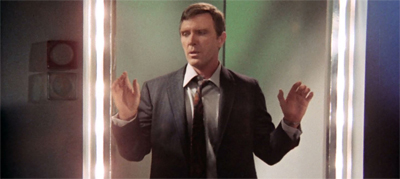





“Based on these conversations, it seems rather unlikely that Assignment: Earth would have been particularly happy behind the scenes. There is a sense that Roddenberry and Wallace really had no idea of what they would do with the show if it did get picked up.”
I’ve never understood what they were planning to do with the series. Make it about Gary Seven attacking the problems of society, like he did with the arms race in A:E? That would be far more direct – and “preachy” than Star Trek’s “show us a future where these problems have been overcome.” I wouldn’t necessarily have minded, but I think the audiences and censors of the sixties would’ve been less than pleased.
Make it about Gary Seven fighting supervillains, like he does in Eugenics Wars and like most spies in the TV shows of the era did? That would just be boring, and a complete waste of the “alien operative with a socially conscious mission” hook.
A cool story might have been to have Gary Seven discover operatives from another alien power also on Earth, but for less benign missions, so the main plot would be about them struggling over control of
the planet and their different visions for it – but that would take the kind of serialization and world building that they’d never have tried in the sixties, if it even occurred to them.
I just don’t see how the show would’ve worked.
(On the other hand – and now for something completely different – I DEMAND that someone, somewhere, write a Gary Seven/Men In Black crossover someday).
Yep. It is weird to imagine how the show would have worked without devolving into an inferior imitation of shows like I, Spy or Mission: Impossible.
Even I am wary of the preachy stuff, because there’s no telling what the writing staff might have looked like. I’m not sure I’d want twenty-odd weeks of Roddenberry preachiness, but from Gene L. Coon or D.C. Fontana, maybe.
Although, as Ben mentions below, John Byrne’s five-issue Assignment: Earth offers an example of how that writer would have handled it – a series of five done-in-one episodic adventures that feature cameos, crossovers, social commentary and world building. Vietnam, Cold War, Nixon. I like the idea, but the execution is so-so. However, Byrne’s style does feel quite like what a later sixties or early seventies television show might look like.
I remember thinking during the last MIB movie that Assignment: Earth could be done still. Would have to have been in this time period.
My take on what it might have looked like our homemade credits and homegrown theme music for the show that might have been….
and,…
Cheers!
I cannot help wondering how an Assignment: Earth ongoing television series might have worked out, if only because Robert Lansing was such a great actor. Also, there is a certain potential to the premise. But as you observe, given a closer examination, the set-up may not have been especially well thought out. It’s really difficult to tell how it could have turned out based solely on a backdoor pilot.
Even if Assignment: Earth had gotten the green light as an ongoing series I honestly could not imagine it lasting more than a couple of years at the most. There really was not much of a market for science fiction television back in the late 1960s. Star Trek’s difficulty in barely managing to last for three years is proof of that.
I did think that the Assignment: Earth miniseries that John Byrne did a few years ago was pretty decent, although it had it’s flaws. But I still see that potential to the concept, and I wouldn’t mind seeing it revisited again.
Yep. It is hard to judge from an episode of another show. Nevertheless, it’s always fun to speculate based on what we know! (And even what we don’t!)
Actually, there’s a review of that Byrne series a-comin’. Tomorrow morning I think. Gary Seven appeared in a lot of spin-off material!
Yeesh! Teri Garr is the greatest, but I’ve read her book and she strikes me as an Midwestern housewife who can never be pleased. (My aunt’s from Ohio, I know the sort.)
And what’s wrong with swap meets? 🙂
I did like of the image of a man in period dress neutralizing the Enterprise crew. That’s a moment that makes you sit up and take notice. Good thing they recycled it for Encounter At Farpoint.
Very nice observation.
I think Gary Seven is a cool idea, at least in theory. I’m less convinced that the version that appeared in the episode is workable. But, you’re right, the imagery is fun and striking in a way that the rest of the episode… isn’t.
Just occurred to me – if you do want to see how Robert Lansing would have done with his own spy show, he played Control in The Equalizer (TV show, not movie). Not the main character, but one of his oldest friends who remains in CIA and often appears when the CIA wants something from McCall, or vice-versa, or when their interests are clashing.
No science fiction element, but worth a look all the same.
Ah, cheers!
I hope you’ll go on to review the third season someday!
The plan is provisionally to review the third season the month that Star Trek III comes out – so May 2016?
In the meantime, 2015 has a lot of Star Trek reviews, if you are interested in the franchise outside of TOS? Planning do all of ENT as a “prequel” to the show’s fiftieth anniversary (January, April, August, December). Also hoping to do the fourth season of DS9 and the second season of VOY (across September and October). And then hoping to get through a significant portion of the rest of the franchise in 2016, if everything goes to plan.
I was a TOS fan from 1969 – 1986, then I moved into a TV-free household and lived with a man who thought that television was the root of all evil. So when TNG came out in 1987, I not only didn’t own a television, I didn’t even know it was on.
I have a lot of problems with what they’re doing in the reboot movies, but seeing them did remind me of how much I’d adored TOS as a child and a teen, and the first thing I did was to re-watch all 79 episodes of TOS, then insist that Mr. TV-Is-Bad watch them with me. 🙂
Then I started on the other Star Trek shows. I watched the first couple of episodes of TNG and persevered through an unexpectedly racist episode, an episode that tried to redo “The Naked Time” and failed miserably, and a couple of other bad episodes, but I balked at “Lonely Among Us.”
In “Lonely Among Us,” Picard ADMITS to the ship’s doctor that he’s been TAKEN OVER BY AN ALIEN CREATURE. The first officer and doctor try to do something about this, but Picard tells them to go away and stop bothering him, and they run away with their tails between their legs.
Say WHAT? If Kirk had admitted to Spock and McCoy that he was possessed by an alien creature, first they’d have tried to talk to it. But if that didn’t work, Spock would have neck-pinched him or McCoy would have hypoed him unconscious. I couldn’t believe that Riker and Crusher just kinda shrugged and told each other that there was nothing they could do. How the hell are these people going to SURVIVE in a dangerous galaxy?
Where’s my confident, in-charge captain? Where’s my knows-everything, ready-for-anything Vulcan? Where’s my crusty, fearless doctor? *sigh*
Friends tell me that TNG is going to get MUCH better. I’m amazed it survived long enough to do so. I really WAS trying not to expect the new guys to be like the old ones. But when the new ones are stupid and ineffectual, it’s a lot harder to maintain that position.
I’ll go back to TNG eventually, since people tell me that it eventually becomes wonderful, but I’ve stopped watching it and started working my way through Voyager. Hmm, a dynamic, take-charge captain, a Vulcan (even if he’s not as cool as Spock), and a snarky doctor … yeah, this show is a much easier transition for the TOS fan. 🙂 And watching a female captain geek out with a female chief engineer in one of the early episodes … be still my heart! I have waited for a moment like this for SO long!
Friends tell me that Voyager is eventually going to become awful, just as they tell me that TNG is eventually going to become wonderful. But for the first seasons of each, at least, I’m finding Voyager a lot easier to swallow.
Still, no matter which other Star Treks I end up liking, I don’t think anything will ever dislodge TOS from the place it has in my heart. I first saw it at the age of eleven, when I simply took it all in uncritically, and although my middle-aged self now sees the sexism, the heavy-handedness of the messages, the wrong-headeness of Kirk’s cultural imperialism, and all of that, some part of me is still that eleven-year-old who loved TOS unreservedly … and always will.
TNG starts hitting it out of the park in its third season. I think the third season of TNG is one of the best seasons of television every produced. (The first two are pretty terrible, with the occasional highlight. If you want to skip ahead to the good stuff in the first two seasons, I’d recommend “Home Soil”, “Heart of Glory”, “Conspiracy”, “Elementary, Dear Data”, “A Matter of Honour”, “Q Who?” and “The Emissary.”)
Voyager is much maligned among fans. Probably my least favourite Star Trek, even though I don’t think it is as bad as people make it out. It is very episodic – quite like TOS in that way. It has some highlights, but a lot of it is formulaic. But when it does hit it out of the park, it ranks up there with the best of the franchise. I remember being quite fond of the third through fifth seasons, and finding quite a few underrated gems in there.
However, given that it is largely using the formula defined from the third season of TNG onwards, I’m kinda curious what your reaction might be watching VOY first. Is it just over-familiarity that prompted fandom’s backlash to Voyager? Let me know your opinion if you do jump back to TNG after VOY, if it seems like TNG is perhaps more repetitive, if that makes sense?
I do notice you didn’t mention DS9. That is probably, from the fourth season onwards, my favourite Star Trek hands down. (Although it is interesting for the entirety of the run.) It is perhaps a little quirkier than the other spin-offs, but I think it has probably aged a little better than some of the nineties Star Trek.
This was one of my favorite Star Trek episodes. Lansing was brilloant. In my opinion, which counts for nothing, this review is garbage.
Well, you’re entitled to your opinion.
Would you care to elaborate upon it? Explain to me why it’s garbage? What precisely you disagreed with? What you like about Assignment: Earth and what I’ve missed about it?
I once thought it might be interesting to circle back to the “Gary Seven” types and their mysterious benefactors (not the novels we saw, but the TV shows). Their apparent benevolence could be a subtle source of conflict.
It might be interesting to see the Federation deal with the manipulation of Earth’s history by high-minded and mysterious extraterrestrial benefactors acting through almost-human agents (though I doubt we’d see the original, awkward eugenics angle reappear). There are a few themes that could be used to explore, a prominent one being the struggle between choice and fate, since Seven seemed to pinpoint the Enterprise in history as soon as he saw Vulcans and humans together, and he knew the “right” outcome of his own actions on Earth.
Nowadays, though, I wouldn’t really trust the franchise to handle that well. The two latest series have gotten a little too eager with their use of shades-of-gray secret societies as plot engines.
It’s a theme that Roddenberry would spin again in another attempt at piloting the series in “The Questor Tapes” which is mostly memorable for future “BJ” Robert Farell playing sidekick to an incompletely programmed Android who’s the last of his ancient line apparently sent here to influence the Human Race since prehistory.
This wasn’t the last seen of Agent 194. The now Senior Supervisor would make returns in several novels and comics, most notably the one that echoes the spirit of the intended series. Star Trek: Assignment Earth put out by IDW.
As I recall, the android was an inspiration for Data on The Next Generation.